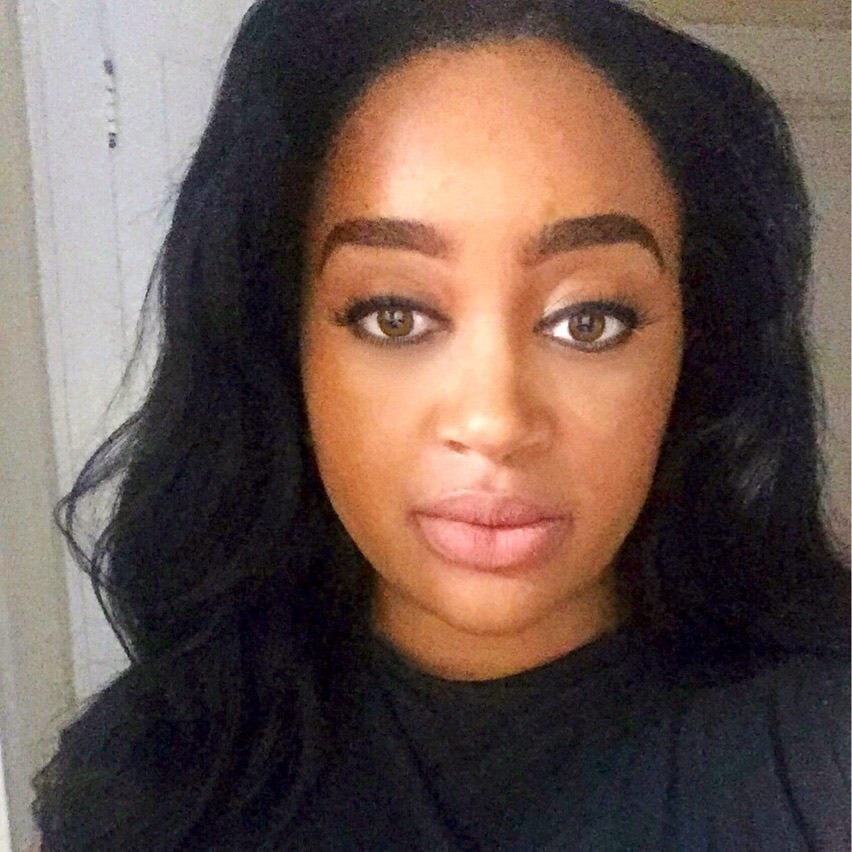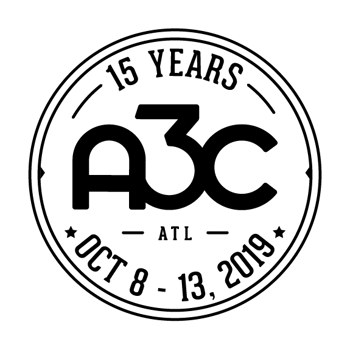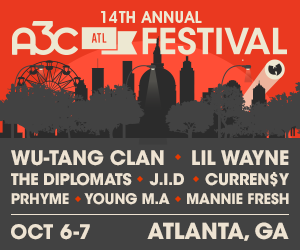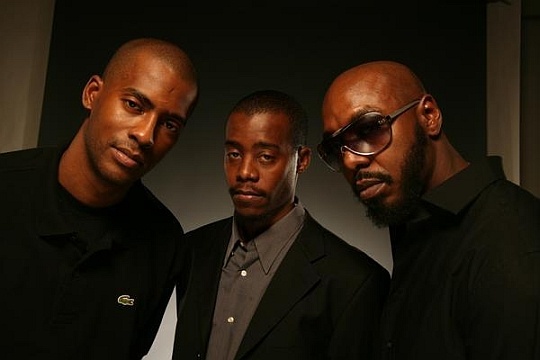
Twenty years ago, Organized Noize brought a Southern aesthetic to the forefront of hip-hop culture. The preeminent production trio (Rico Wade, Sleepy Brown, Ray Murray) are credited for producing classic hits like TLC’s “Waterfalls” and En Vogue’s “Can’t Let Go (Love)” as well as albums for Goodie Mob and Outkast. The Atlanta music scene would not be where it is today without their creative efforts and fearless ability to give “The South something to say."
To celebrate their success, entertainment social-networking platform,You42 will be honoring Organized Noize along with Shanti Das at an exclusive brunch mixer during A3C Festival and Conference 2015 on Oct 9th.
The group recently spoke with A3C to discuss their new documentary, thoughts on Atlanta's new music scene and the importance of A3C for the hip-hop community.
Here is what they had to say:
It takes a village and a journey to achieve success. The three of you have gone to great lengths to reach your twenty year milestone. Let’s go back in time where it all started. What were your first studio sessions like and what were some of the first pieces of equipment you bought to help kick start your careers?
Ray Murray: The first piece of equipment we came up on was an MP16 and an MP62 that were paid for by some of our group members. We began working with those pieces of equipment to start out. Now, the first studio we every worked in was the 2560 recording studio, which was my dad’s from brick. The studio was owned by Eddie Hines. We used to go to the studio late nights at discounted rates and he would look out for me. It was always fun to go late, because we would always try to record with him when he was really tired. We recorded there as much as we could.
How did the three of you get acquainted with each other and later form Organized Noize?
Sleepy Brown: It was just something we really wanted to do. When I came in the crew and had my 4-track and keyboard I think it gave everybody some hope that we can do something collectively. When we all got together and they saw how serious I was about music and that became a push for us to start something big. We really believed in each other shared the same love for music.
Ray Murray: What started it all, as far as the music was Sleepy. He was the first person who really wanted to make music and this is when we were already friends. In the Atlanta scene you had Dallas Austin, who we knew about us as individuals, because he was someone that was close to our age and came from the same place. When people would ask, “How do you get to do these kind of things? “ He encouraged us to get more involved in what he was doing with producing. This was a time way before Outkast came around. This is where the original vibe came from and this is what drew Outkast to want to come around us. They had already heard about us and what we were trying accomplish. We made a lot of sacrifices for our careers. When we bought that equipment it was not cheap, but it was worth the blessings that came after.
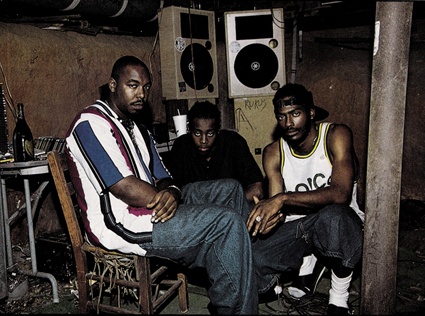
I frequently ask the next generations of producers who they admired growing up and they always put Organized Noize in their top three. I’m sure there was a point in time you guys had producers you looked up to. Can you name a few?
Rico Wade: I personally liked and tried to study Dr. Dre, Rick Rubin, Mally Mall, DJ Premiere and more. I really just liked anyone who was using different types of sounds and who were creative with their production. For every song I liked I would always check the credits to see who produced it.
Sleepy Brown: I would have to say every funk band alive from the 70’s. I loved Cameo, Isaac Hayes, Barry White to name a few. I loved Larry Smith and The Bomb Squad. I really wanted to be just like them. I loved the way they mixed samples. Ray was the one who turned me on to sampling.
New York has always been a major influence on Southern rap. How do you feel about the switch that’s happening where Atlanta’s sound is now leading hip-hop on all three coasts?
Rico Wade: I think it’s beautiful, but I think it says a lot. It’s not just that the sound is different, but it’s also a complete culture thing. When you hear ghetto and trap music people instantly think Atlanta just like when people hear old school hip-hop they think of New York. Those sounds may have come from Philly, Virginia, Detroit or anywhere else on the East Coast. Atlanta has its own distinguished sound, so that’s something to be proud of. Like you said Lauren it really is like having a third coast. The Atlanta community is definitely turnt up right now. I am very proud of the coolness the city has. If it wasn’t for us opening doors for hip-hop in the South none of this would be happening. These young people coming up are very talented, but even more so because they are doing it on their own. Everyone has their own Dungeon Family where they come together and make music. I think that is awesome, because that is something we started. Somebody is constantly cookin music in Atlanta. It wasn’t always like this, but that is why I like to credit us, Dallas Austin, Jermaine Dupri and so many other producers.
Looking back on the early stages of your careers did you ever think Organized Noize would last two decades?
Ray Murray: We were hoping for that. We were planning for our careers to last with the way we were working on things. We would always make sure the drums sounded a certain kind of way or make sure we didn’t have repetitive hooks. The effort we put in made us feel our songs would last forever. We did a lot of studying and learned tons of different sounds. Once we picked up on things people hadn’t heard before I knew we were guaranteed, because we were giving a new sound to hip-hop culture.
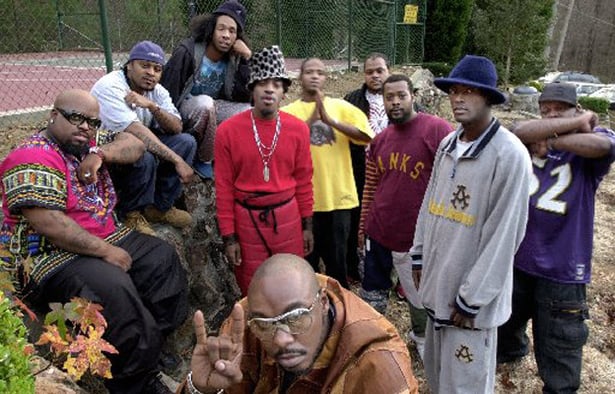
Organized Noize and Dungeon Family has such an amazing story. Do you think a biopic is in the foreseeable future?
Rico Wade: We have a documentary coming out called The Art of Organized Noize. I have heard Big Boi and Dre were thinking about something that encompasses everybody in some form or fashion. Of course it would star them as Outcast. Out story is so deep and intertwined that it would be more than a story about the two of them. It would be about the evolution of Atlanta hip-hop from our perspective.
What role do you think A3C festival plays in hip-hop culture?
Ray Murray: Originally it was like Freaknik where it was just a picnic but on by a bunch of college kids by the Atlanta University Center and later became a national Spring break event. A3C was sort of like that in its beginning stages. The progression now has given hundreds of artists a platform to showcase their talents. The festival has maintained its integrity and hasn’t gone the corporate route. Now, it’s more important than ever because you don’t have as many authentic avenues for new artists to be discovered or for old artists to re-connect.
Rico Wade: I feel like it actually reunited hip-hop. A3C reminds of a real convention where people would go to learn. There had enough of a following where the event felt major and still feels that way today. It includes all three genres of music. That is very important in Atlanta, because we had to show the relationships with areas like Little 5 Points or East Atlanta Village. A3C encompasses the diversity of Atlanta. The crowd of people that come to A3C is our crowd of people. It’s the perfect blend.
What advice would you give to the next generation of producers?
Rico Wade: Keep going and continue pushing the line. Try new things and experiment. Keep them cutting checks. Keep it human. [laughs]
